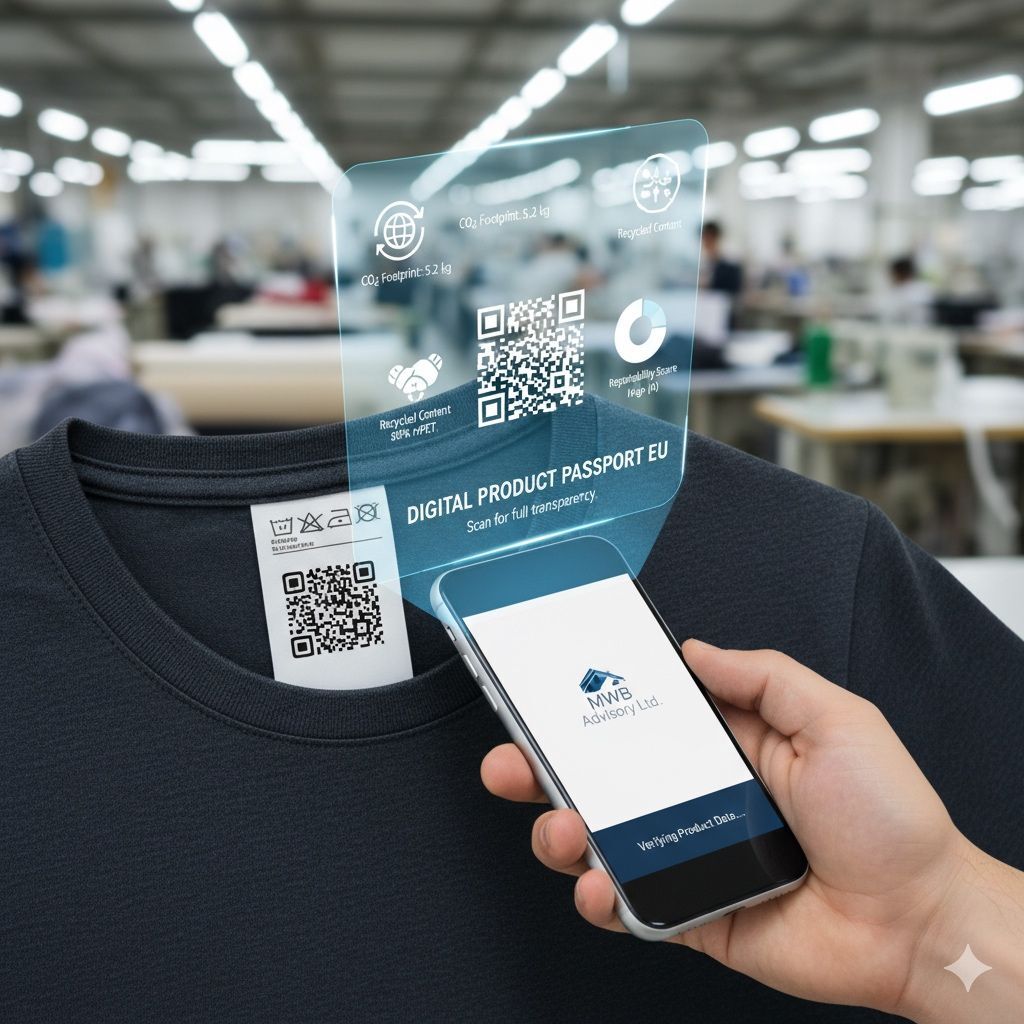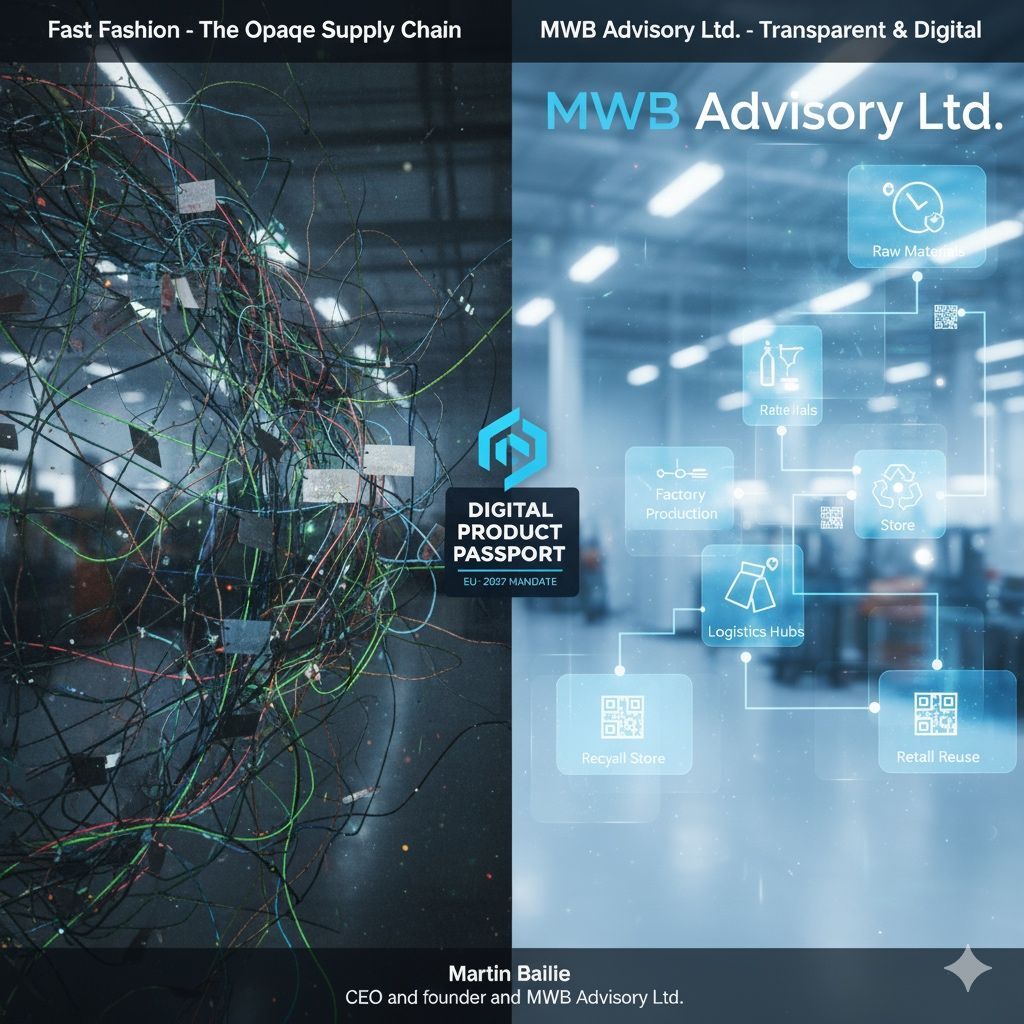
The EU's Digital Passport is a Death Sentence for Opaque Fast Fashion.
The volume of enquiries hitting my inbox about the EU’s Digital Product Passport (DPP) has been immense—and it’s clear why.
“This is not just a new regulation; it’s the biggest structural shock the retail sector has faced since the invention of the barcode.”
Martin Bailie
I have compiled a comprehensive roadmap for retailers to prepare for the 2027 textile deadline, focusing on where the pain points—and opportunities—are greatest.
The EU’s Digital Product Passport, mandated by the Ecodesign for Sustainable Products Regulation (ESPR), represents a seismic shift for the retail sector — particularly for fast fashion. With a deadline set for mid-2027, this is not merely about compliance; it’s a transformative challenge that demands urgent and strategic action.
Why Fast Fashion Must Act Now:
– Waste Volume: The EU alone consumes 523 kg of textiles per person annually, with only 1% being recycled into new clothing.
– Greenwashing Accountability: Transparency is taking center stage. Consumers are demanding verifiable information, making it clear that the industry cannot rely on vague claims any longer.
Here’s a critical roadmap for fast fashion retailers to navigate this change:
🔍 Phase I: Digital Foundation (Now – Q2 2026)
– Mandate traceability from raw material sources (Tier 4).
– Revamp SKU creation processes integrating DPP data requirements.
– Invest in robust Product Information Management (PIM) systems.
🏷️ Phase II: Physical Tagging & Pre-Compliance Testing (Q3 2026 – Q1 2027)
– Implement mandatory QR codes on all garments from the factory.
– Conduct proactive audits to verify DPP data.
– Shift design strategies towards mono-materials for easier recycling.
⚙️ Phase III: Scale & Compliance (Q2 2027 – Ongoing)
– Integrate DPP status with logistics to prevent compliance risks at EU borders.
– Leverage DPP for innovative circular revenue streams.
– Utilise traceability data for operational efficiency and transparency.
The bottom line? The DPP will force fast fashion brands to choose: invest in data transparency or risk losing access to the EU market. This transition is not about mere survival; it’s about thriving in a new era of retail sustainability where transparency reigns supreme.
The time to act is now. Let’s shift from opacity to a circular, transparent model!
For those looking to navigate this transformation, feel free to reach out to me at MWB Advisory



